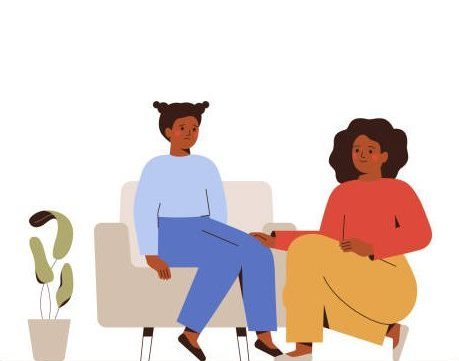What If You Were the First Responder to Someone’s Mental Health Crisis?

Imagine walking into class and noticing that someone hasn’t been themselves for days. They’re
quiet, distracted, and keep to themselves. You feel something’s wrong but you’re not sure what to
say, or if it’s even your place to say anything. You notice something’s not quite right.
The one who used to crack jokes now barely makes eye contact. A friend who was always on top
of things suddenly stops showing up. A colleague starts making small mistakes, seems on edge,
and shrugs off any concern with “I’m just tired.”
Deep down, you know it’s more than that.
Almost everyone has found themselves in these moments, where someone around us is clearly not
okay, and we’re left wondering what to do. Do we say something? Do we stay quiet? What if we
make it worse?
This is the moment where we need something that few of us are ever taught: the ability to respond
to emotional pain with calm, compassion, and confidence.
Just as physical first aid teaches us how to respond to cuts, burns, or choking, Psychological First
Aid or PFA gives us the tools to support someone who is struggling emotionally. It doesn’t take
years of training. It doesn’t require you to be a therapist. It simply prepares you to show up for
someone who’s hurting, in the right way, at the right time. As conversations around mental health
grow louder, PFA is becoming an essential life skill. Whether you’re a parent, peer, teacher,
manager, or friend, knowing how to show up for someone in distress can make all the difference.
Through our work with the Mastercard Foundation Scholars Program, we grew out of a shared
belief that academic excellence must go hand in hand with emotional well-being. These students
are bright, driven, and full of potential. But like many young people today, they also face immense
stress, loneliness, and self-doubt.
We held a three-day PFA training built around open dialogue, real-life scenarios, and practical
learning. Participants reflected on how emotional distress often hides in plain sight in silence,
irritability, sudden withdrawal. They learned that support doesn’t always mean solving someone’s
problem; it can be as simple as listening, staying present, or helping someone feel safe enough to
open up.
“Look. Listen. Link.” That’s the simple but powerful model we use in Psychological First Aid. As
Dr. Jean Pierre Ndagijimana, Senior Regional Manager of Strategy and Partnerships, put it:
“We did this training because we believe that emotional support is essential. ‘Look, Listen, Link’
is a model that helps people stay grounded while responding with care. It teaches us to payattention, to be fully present, and to know when to guide someone toward more professional help.
It’s about creating safer communities one conversation at a time.”
One participant, David, shared, “I used to think supporting someone meant fixing them. Now I
know that just being present and listening is already a powerful form of help.” Another said, “This
training helped me realize that many of the behaviors I used to judge were actually cries for help
I didn’t recognize.”
While this training took place in a university setting, the truth is that the need for Psychological
First Aid exists everywhere. In classrooms and offices. On social media. Around dinner tables. In
moments we often overlook, when someone needed us to notice and we didn’t know how.
PFA is not just about emergencies. It’s about everyday empathy. It’s about learning to really see
each other. And in a world where so many people are silently struggling, that’s one of the most
powerful things we can do.
Because sometimes, what helps isn’t a solution, it’s a conversation that reminds someone they’re
not alone.
